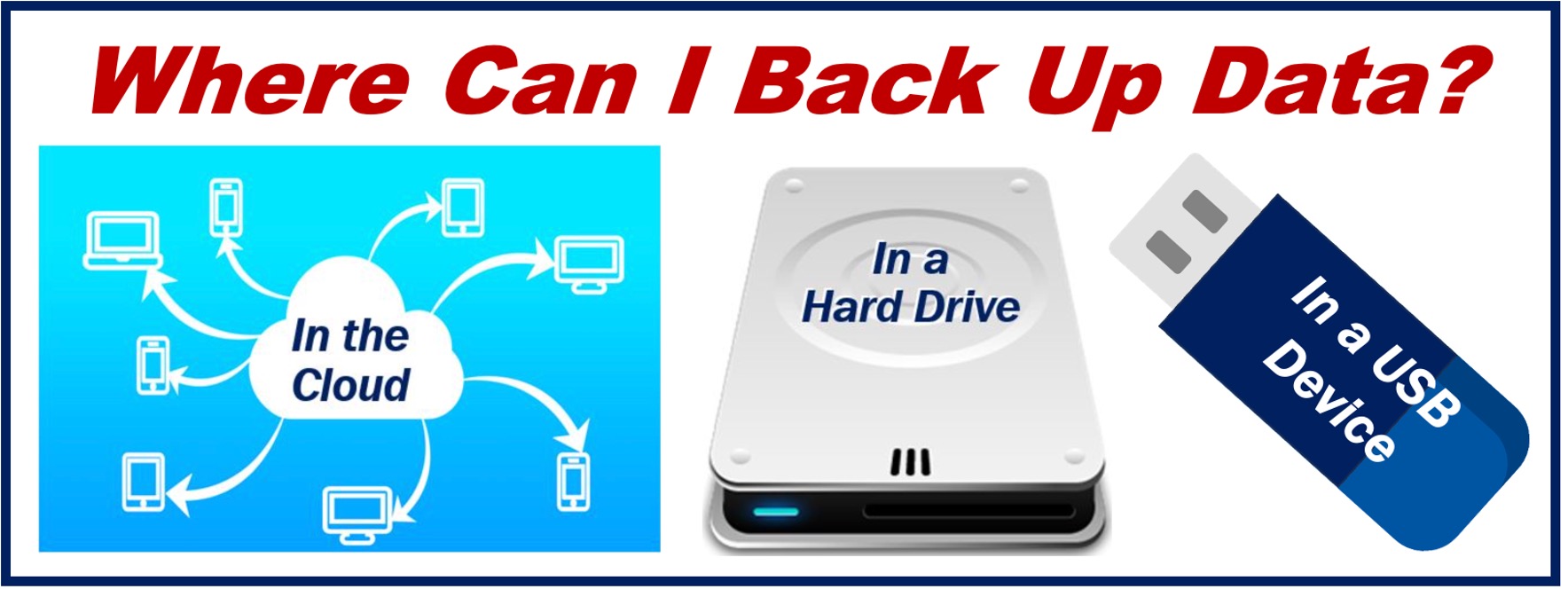If you create a copy of data or a file and save it to the cloud or a USB drive for emergency use, you have created a Backup. A backup serves as a safeguard for digital information.
The term backup is a noun while the verb is to back up.’ Please remember that the noun is one word while the verb consists of two words. Look at these two sentences:
- Noun
“I have a backup of my files,” is an example of the noun in a sentence. It consists of one word.
- Verb
“I have backed up my files,” is an example of a verb. It consists of two words.
According to techopedia.com:
“Backup refers to the process of making copies of data or data files to use in the event the original data or data files are lost or destroyed.”
Types of backups
There are many types, including:
- Full backup
This involves copying all the data from a system or device. Although it’s the most complete one, it can take a long time and uses up a lot of storage space.
- Incremental backup
The only difference between this type and the full one is that this method is quicker and saves storage space. However, it requires a full backup as a starting point.
- Differential backup
In this type, you only save the changes since the last time you backed up data.

Why are they important?
- Data protection
Everything from system crashes to malware attacks can lead to data loss. It makes sense to have a copy of everything stored somewhere else.
- Peace of mind
Knowing that your data is backed up gives you peace of mind, particularly when carrying out risky system installations or updates.
- Disaster recovery
They can be a lifeline in situations like major hardware failures or natural disasters, guaranteeing business continuity and the retrieval of personal data.
- Archival integrity
Over time, data can become corrupted. If you regularly back up your files, you are more likely to have clean versions of your data.
Ways to back up
- External hard drives
External hard drives are portable and affordable, they are very popular.
- Network Attached Storage (NAS)
A specific device that is network-connected to a house or place of business and allows several users to access and back up files.
- Optimal media
Even though they are becoming less common, CDs, DVDs, and Blu-ray discs can still be used as storage devices.
- Cloud storage
Users can store data on remote servers with services like Google Drive, Dropbox, or iCloud, which are accessible from any location as long as you have an Internet connection.
Best practices
Here are some useful tips:
- Back up regularly
Set a schedule. Whether it is daily, weekly, or monthly.
- The 3-2-1 rule
This rule suggests having three copies of your data on 2 different mediums, with one stored offsite (like cloud storage).
- Test your backups
Regularly check to make sure that everything is being stored properly.
- Stay updated
Stay updated by keeping abreast of new technology and ensuring your storage methods are regularly updated or upgraded.
Video – What is Cloud Computing?
This video comes from our Marketing Business Network, our sister channel in YouTube.
Written by Nicolas Perez Diaz, October 29, 2023.
